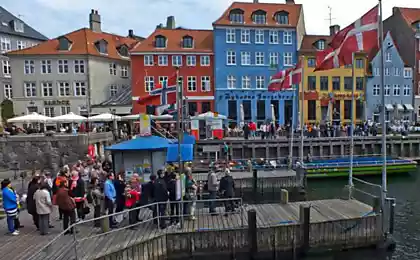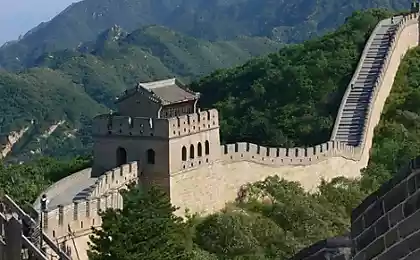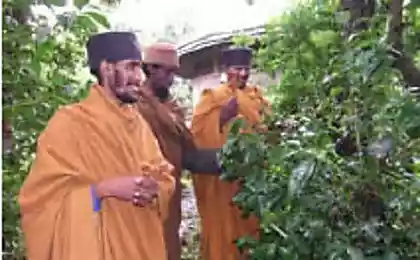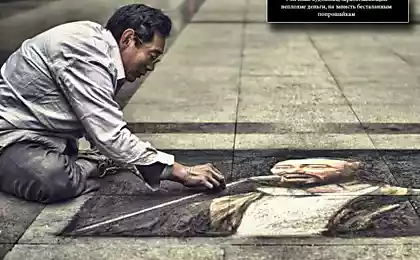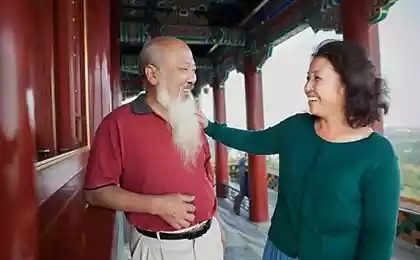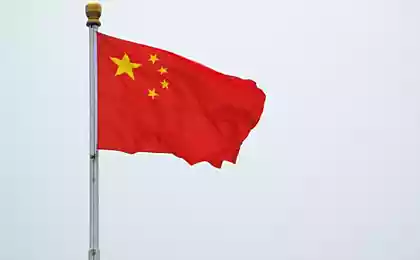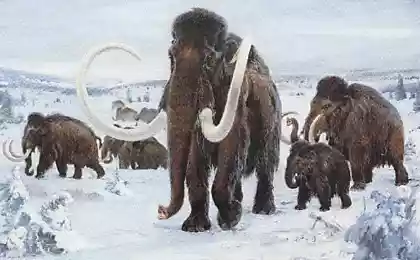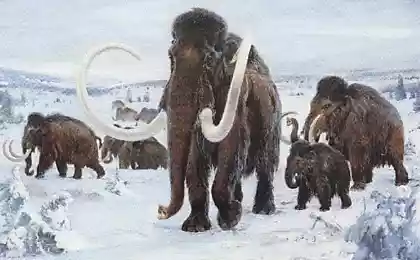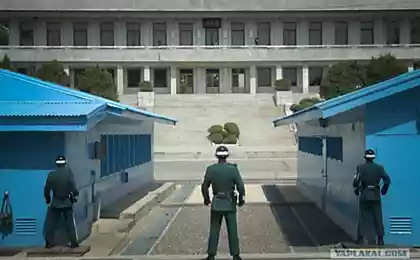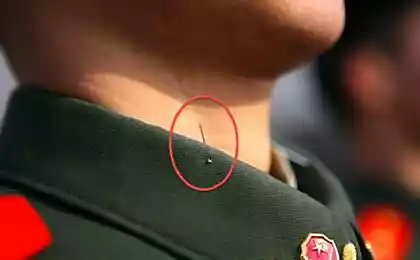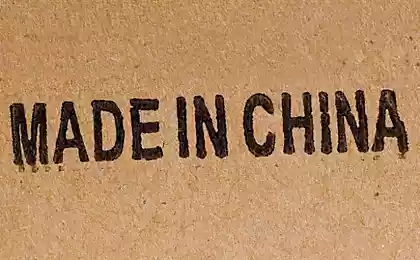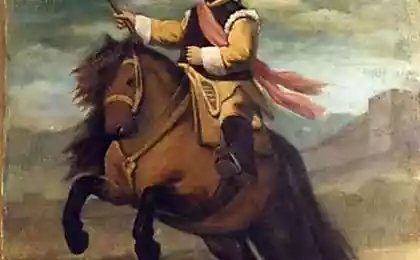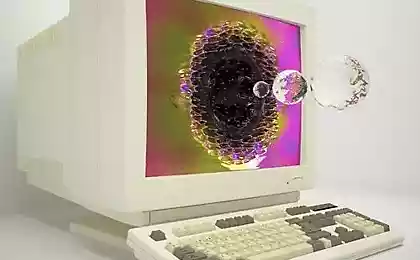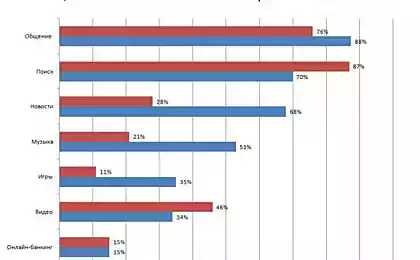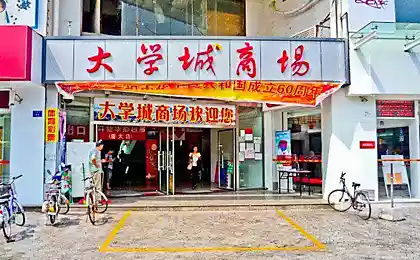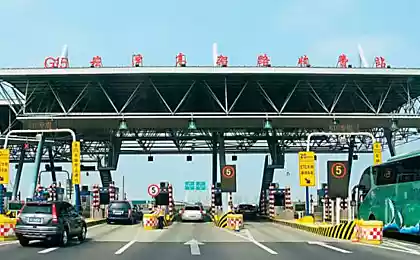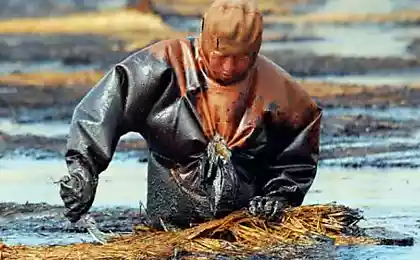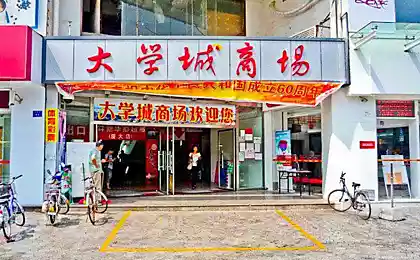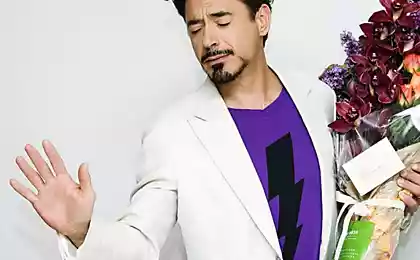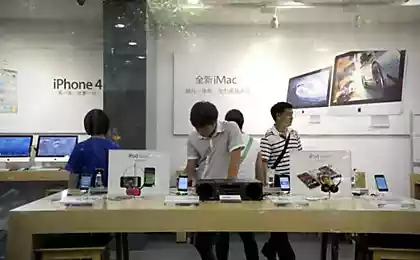761
20 years ago in China recalled today (22 photos)
The unrest began in Beijing April 15, 1989 after the death of the former General Secretary Hu Yaobang, very popular in China policy, a supporter of liberal reforms, openly despised "Maoist excesses."
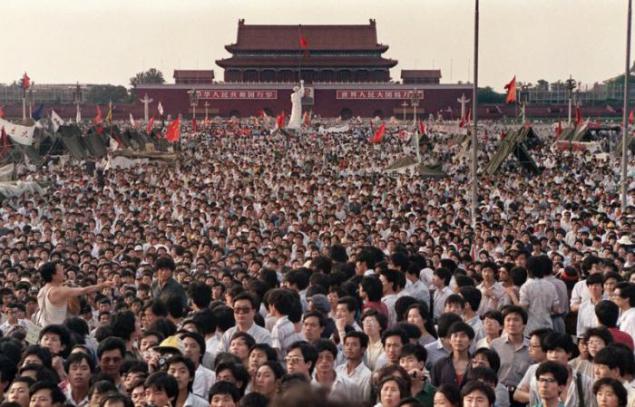
Students gathered to honor his memory and require acquittal in anti-state activities. Very soon added to these requirements protest against corruption, high prices, social stratification between the SEZ (Special Economic Zones) and the rest of the country. The unrest became widespread. People, despite the demands of the authorities refused to voluntarily leave the area. Protests began to settle in other cities, particularly in Xi'an and Changsha.
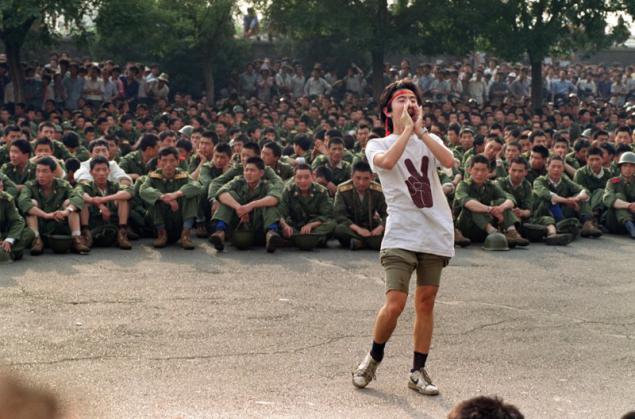
In his report at the meeting of the NPC Standing Committee June 30, 1989 Beijing Mayor Chen Xitong calls main cause of speeches mass fabrication "a handful of organizers of the riots" rumors in order to "demagogic impact on people and incite the masses." In his version, "at the beginning of student protests was dismissed a rumor that Li Peng at a meeting of the Political Bureau of the CPC Central Committee Hu Yaobang supposedly cursed, and he died, unable to bear the insults." Next Chen Xitong accuses liberals of Zhao Ziyang, the enemy the use of the audience in the square force, "conciliatory and permissive attitude toward the events».
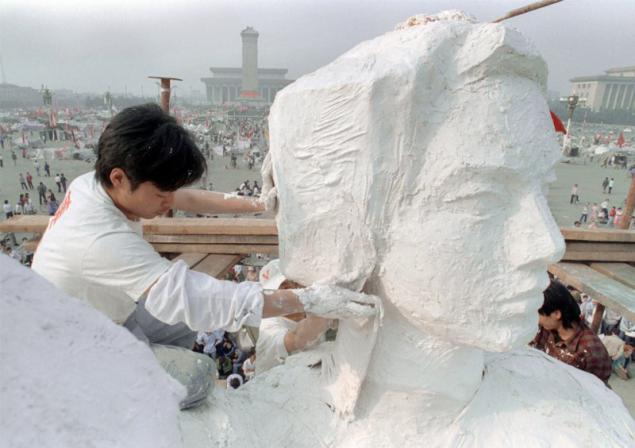
The protests continued for five weeks. Besides Beijing, performances were held in Shanghai, and Wuhan Chonkin.
Demonstration caused a split in the leadership. CPC Chairman Zhao, who was called "Chinese Gorbachev", addressed the students, urging them to disperse and promised reforms. The conservative majority in the Politburo to remove him from power and placed under house arrest (where he spent the last 15 years of his life) and decided to act forcefully.
According to numerous testimonies, the army acted with extreme brutality: unarmed people crushed by tanks, shot on the spot, stabbed with bayonets. The number of victims of the Chinese government still keeps a secret. According to various sources, it ranges from 400 to 2,600 people. 7-10 thousand people were injured and the injury.
For several days in Beijing and other cities were mass arrests. The whole world is spared footage of Chinese soldiers, strolled along the ranks of young people set out on his knees with his hands behind his back. A number of protesters were sentenced to death or long prison terms.
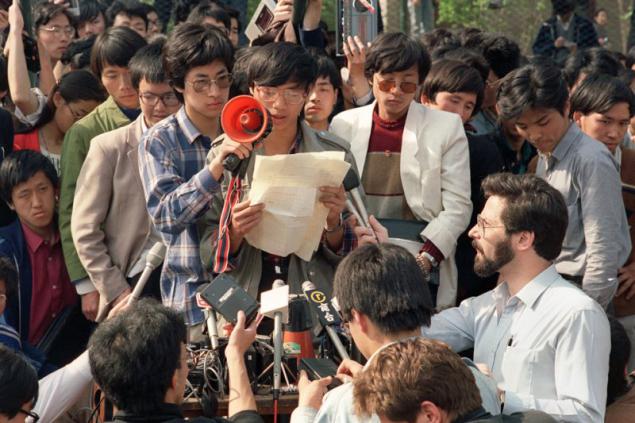
West imposed sanctions against China, which soon enough were canceled. In the USSR, the Beijing event mainly discussed under the foreshortening of the CPSU would it be capable of "Soviet Tiananmen».
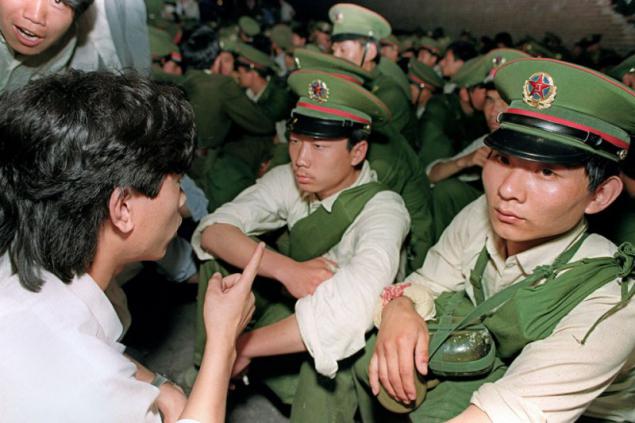
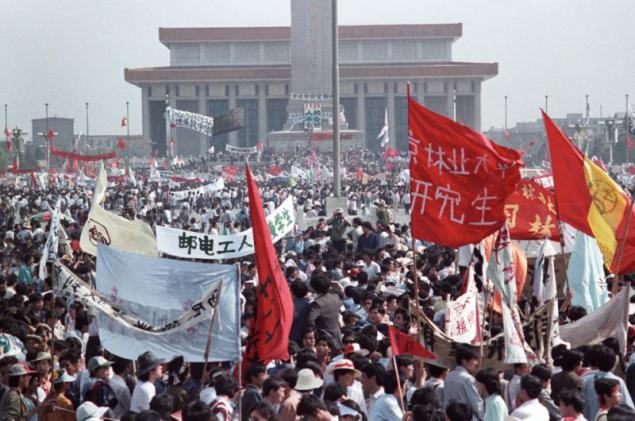
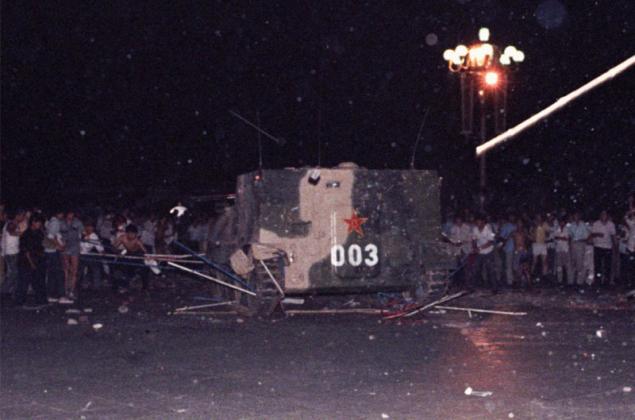
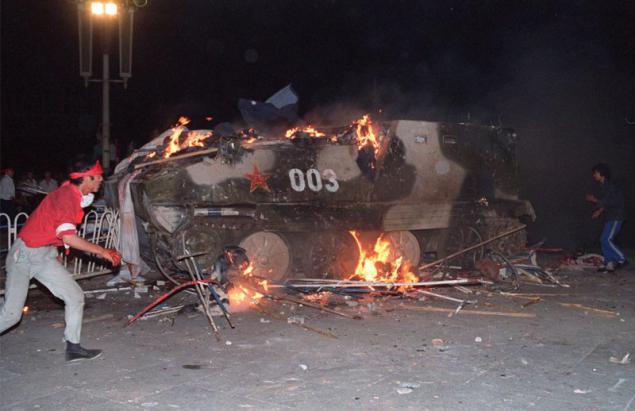
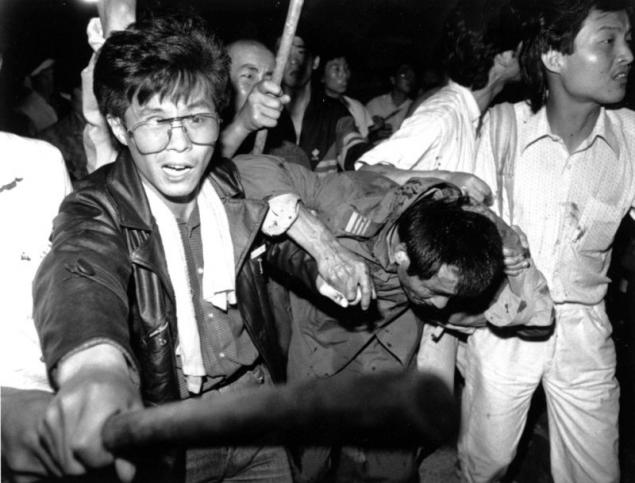
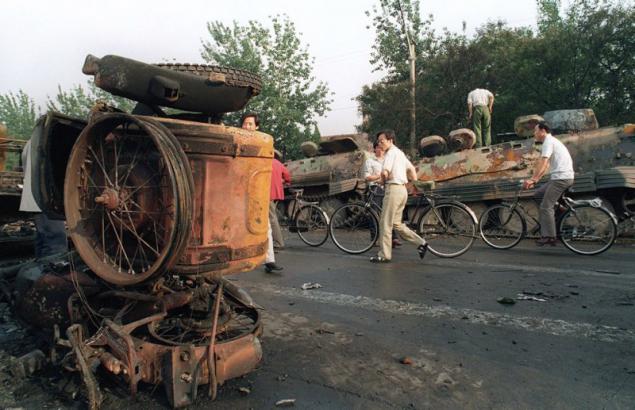
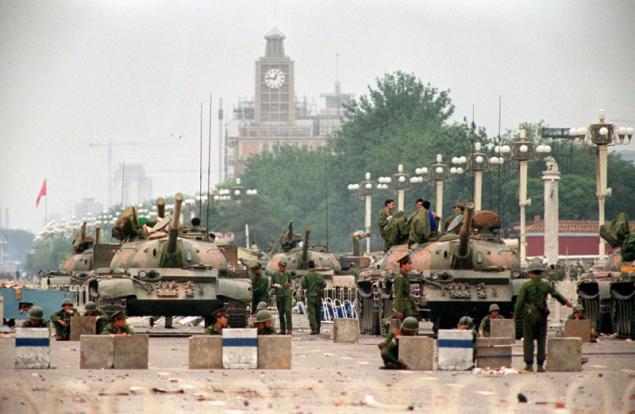
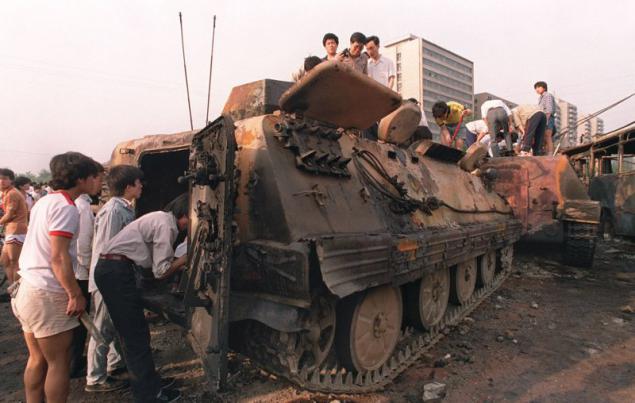
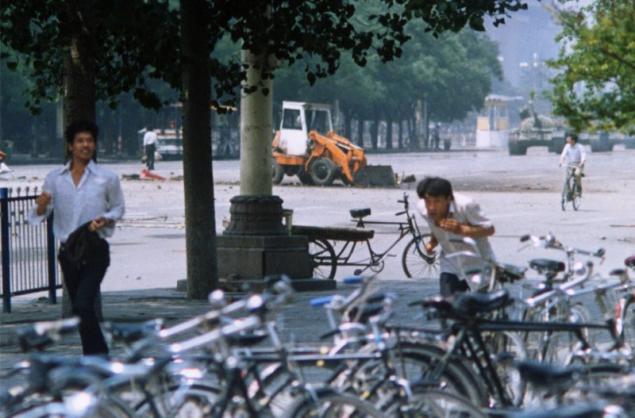
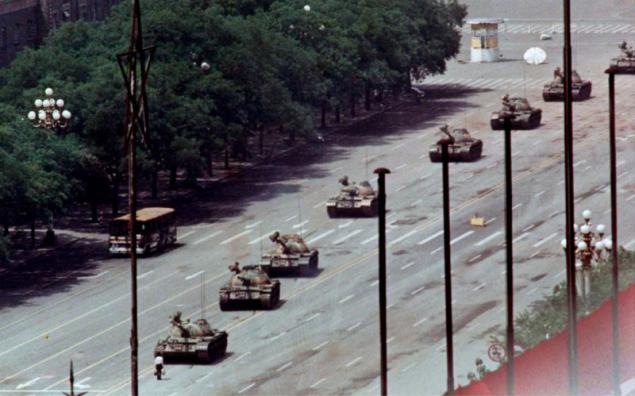
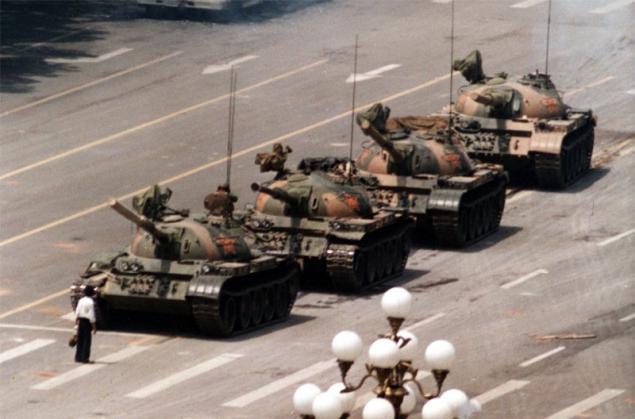
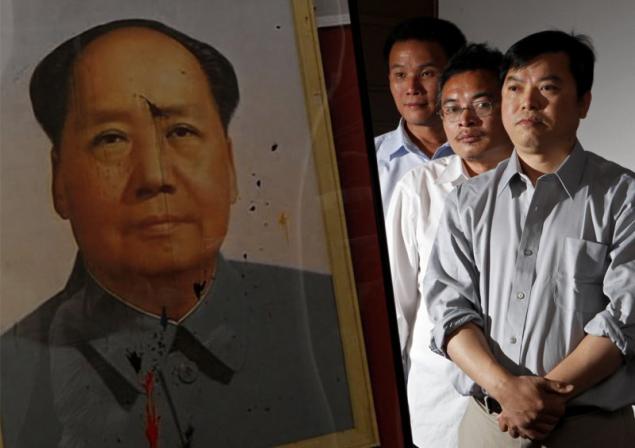
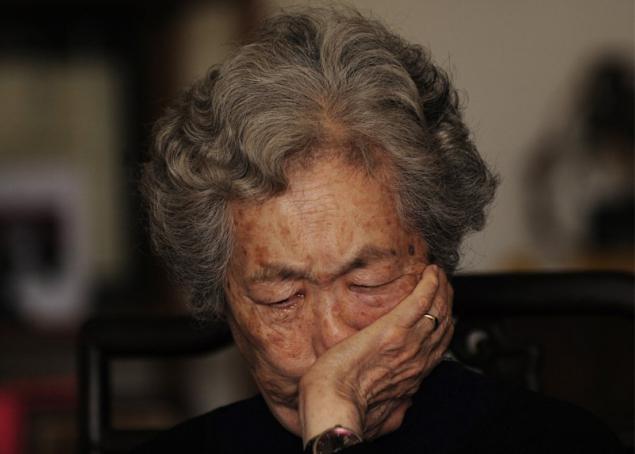
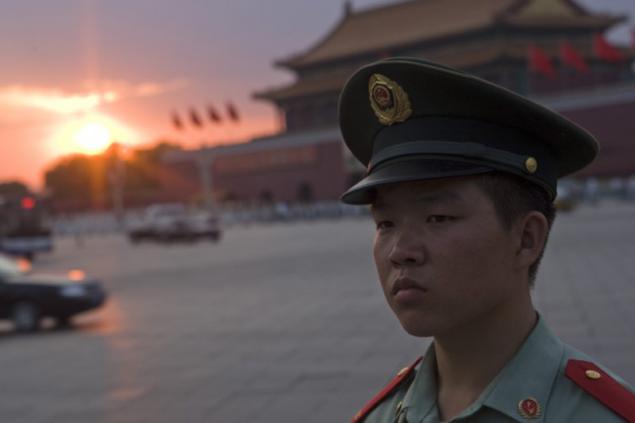
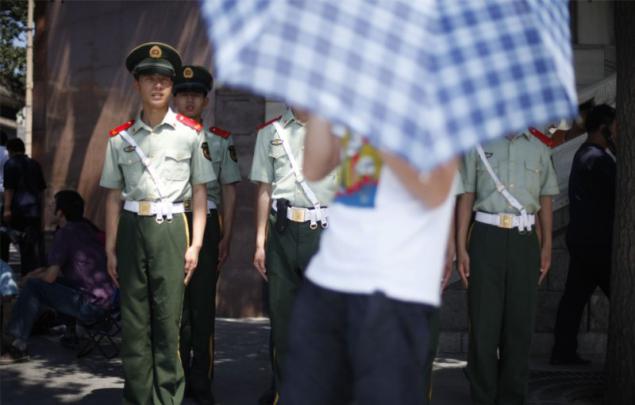
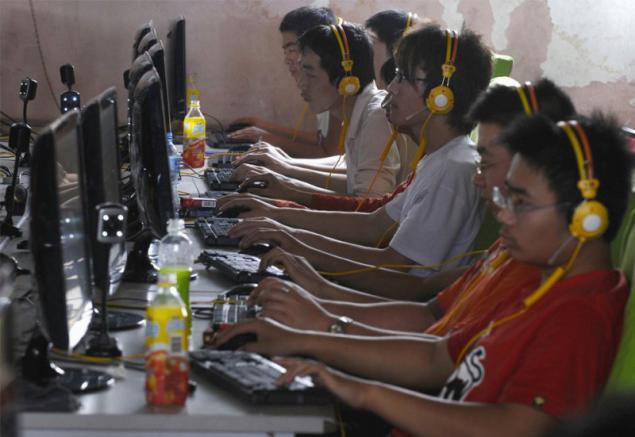
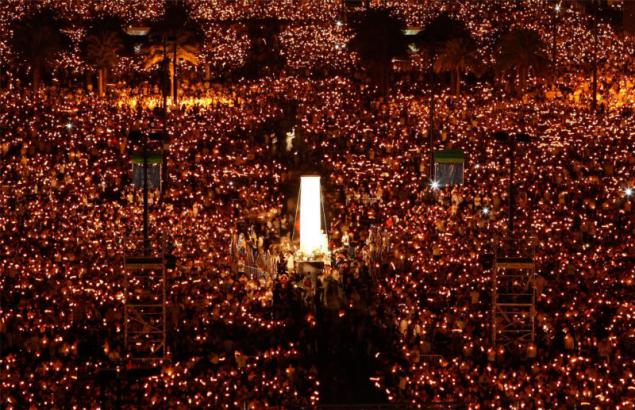

Students gathered to honor his memory and require acquittal in anti-state activities. Very soon added to these requirements protest against corruption, high prices, social stratification between the SEZ (Special Economic Zones) and the rest of the country. The unrest became widespread. People, despite the demands of the authorities refused to voluntarily leave the area. Protests began to settle in other cities, particularly in Xi'an and Changsha.

In his report at the meeting of the NPC Standing Committee June 30, 1989 Beijing Mayor Chen Xitong calls main cause of speeches mass fabrication "a handful of organizers of the riots" rumors in order to "demagogic impact on people and incite the masses." In his version, "at the beginning of student protests was dismissed a rumor that Li Peng at a meeting of the Political Bureau of the CPC Central Committee Hu Yaobang supposedly cursed, and he died, unable to bear the insults." Next Chen Xitong accuses liberals of Zhao Ziyang, the enemy the use of the audience in the square force, "conciliatory and permissive attitude toward the events».

The protests continued for five weeks. Besides Beijing, performances were held in Shanghai, and Wuhan Chonkin.
Demonstration caused a split in the leadership. CPC Chairman Zhao, who was called "Chinese Gorbachev", addressed the students, urging them to disperse and promised reforms. The conservative majority in the Politburo to remove him from power and placed under house arrest (where he spent the last 15 years of his life) and decided to act forcefully.
According to numerous testimonies, the army acted with extreme brutality: unarmed people crushed by tanks, shot on the spot, stabbed with bayonets. The number of victims of the Chinese government still keeps a secret. According to various sources, it ranges from 400 to 2,600 people. 7-10 thousand people were injured and the injury.
For several days in Beijing and other cities were mass arrests. The whole world is spared footage of Chinese soldiers, strolled along the ranks of young people set out on his knees with his hands behind his back. A number of protesters were sentenced to death or long prison terms.

West imposed sanctions against China, which soon enough were canceled. In the USSR, the Beijing event mainly discussed under the foreshortening of the CPSU would it be capable of "Soviet Tiananmen».

















